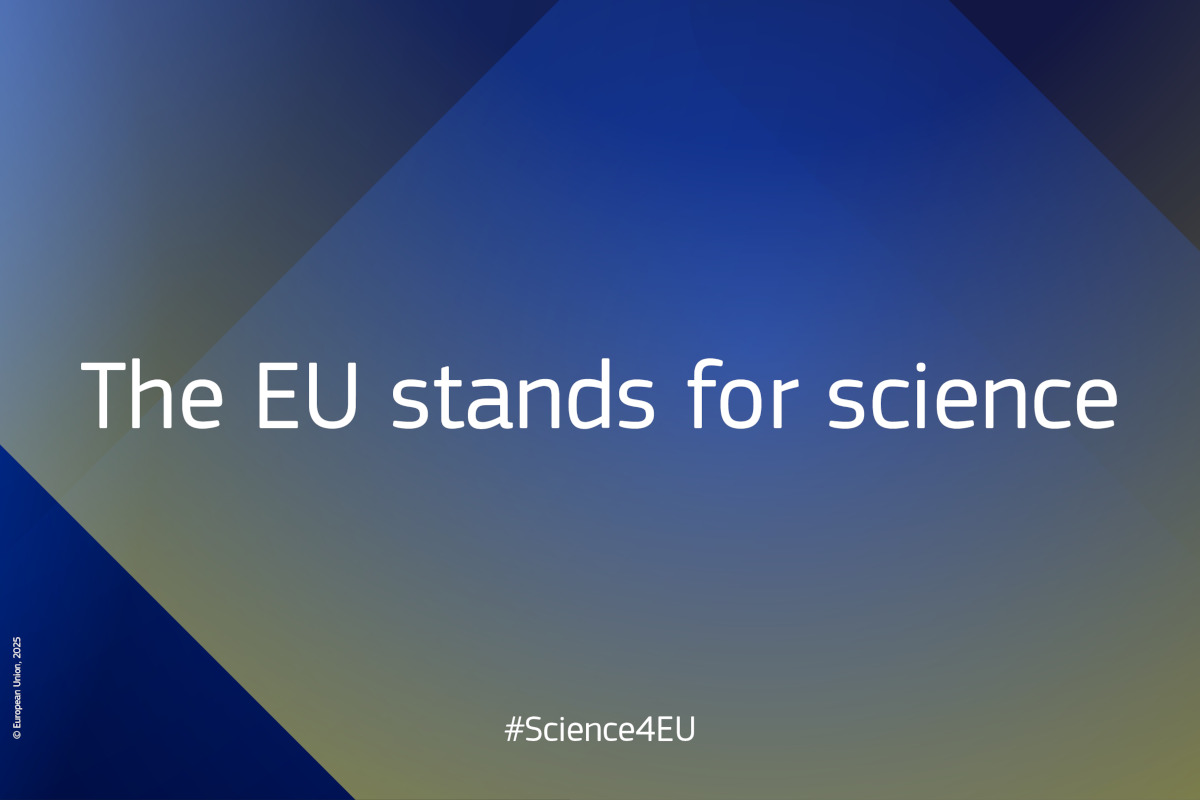Czech and Estonian researchers are joining forces to build a cross-border cybersecurity hub that will strengthen Europe’s digital defences in the face of growing cyber threats.
Special series

Science4EU
The Science4EU campaign shows how the EU stands for science. It shines a spotlight on the scientists, researchers, and innovators working with EU support to improve our lives and shape a better future for everyone.
Do you also stand for science?
Podcast
Media AV Portal Audio
More stories

Farmers and foresters across Europe are sharing sustainable bio-based practices and technologies, showing how local knowledge and European collaboration can help drive the transition to a greener future.
Most popular
-
1By Anthony King
-
2By Jessica Berthereau
-
3By Michaela Nesvarova
-
4
-
5By Michaela Nesvarova
Top videos
Why dolphins’ arteries don’t age – and what that means for us
6 August 2025
Codemakers race to secure the internet as quantum threat looms
1 August 2025
Past articles
Europe’s roboticists are coming together to find new ways of getting their prosthetic arms, grocery-picking machines and automated vacuum cleaners out of the laboratory and into Europe’s homes and businesses.
It’s one of the mysteries that has confounded scientists for over a century – if you offer sick people fake pills and say it will help cure them, it often will. Now, researchers are working out exactly how the placebo effect operates in the brain and how it can be enhanced in order to harness its power in a new approach to treating disease.
This December, Horizon talks to scientists who are drawing lines between free will and genetic disposition, differentiating between feeling and thinking, unlocking how our brains process placebo drugs, and even defining the grey area between consciousness and unconsciousness in comatose patients.
The stigma associated with AIDS and homophobia has made the pandemic even more destructive as in many countries it drives people away from modern treatment that could let them live a normal life, according to Prof. Nathan Clumeck, a leading member of the European AIDS treatment Network (NEAT) with St Pierre University Hospital in Brussels, Belgium.
Body-enhancing robotic exoskeletons will soon be stepping out of movies such as Alien, Avatar and Edge of Tomorrow and into homes, clinics and workplaces across Europe.
Yeast that tracks the stock market index, a woman who simulates giving birth to a dolphin baby and homemade human cheese are just a few projects that have emerged from collaborations between scientists and artists – and the result is to produce better science and innovation, say researchers.
Particles so small that they could carry drugs directly into the brain are offering a new hope for a way to stop the progression of Alzheimer’s disease, or even prevent it from happening at all.
The level of greenhouse gas emissions being produced around the world means that, as things stand, temperatures are likely to rise by around 4.5 degrees by 2100, unless significant reductions are agreed, sophisticated climate simulations show.
A ground-breaking study has caused a dramatic rethink of the process by which predators control ecosystems, and it’s turning classic ecology on its head.
An old diabetes drug could help treat pancreatic cancer – one of the most deadly forms of the disease – thanks to an unexpected discovery about the way tumour cells behave.
By pulling metals out of mine wastewater and automating operations underground, researchers are helping minimise the environmental impact of mining.
Droughts, floods, changing agriculture and rising sea levels. The list of climate change impacts goes on, but what exactly can we expect within our lifetimes?
Cells could be taken from babies born with severe heart defects and used to grow living replacement valves in a laboratory, if technology under development proves successful in real-life trials.
Many shell-dwelling sea creatures are likely to be among the first to suffer as rising carbon dioxide (CO2) levels acidify our oceans, and it could put shellfish-loving humans at risk too.
Memorising random strings of letters, numbers and symbols seems like an inevitable nuisance of internet life, but new devices currently under development could ease the burden by rendering passwords a thing of the past.
It is possible for Europe to shift to a decarbonised economy – and even achieve full employment at the same time – but only if there is government leadership, large upfront investment, and a new way of measuring economic outputs, according to researchers who are coming up with a strategy for how the EU can achieve this.
Around half the rice-based products aimed at children, including baby rice, rice crackers and cereals, contain arsenic in quantities that will exceed EU limits due to come into force on 1 January 2016, according to researchers who are investigating the prevalence of the carcinogen in food.
People will need to lead less materialistic lifestyles if we are to transition to a green economy, but the challenge in changing actual behaviours and lifestyles lies in overcoming our ingrained notions about consumption, success and happiness.
As world leaders prepare to meet in Paris to try to agree ambitious emissions reduction goals, Horizon looks at EU research that is helping us understand how climate change will affect our lives, and how individuals and industries will have to adapt.
Observations from EU satellites are being used to help predict air quality in China as part of a new comprehensive forecast system.





























